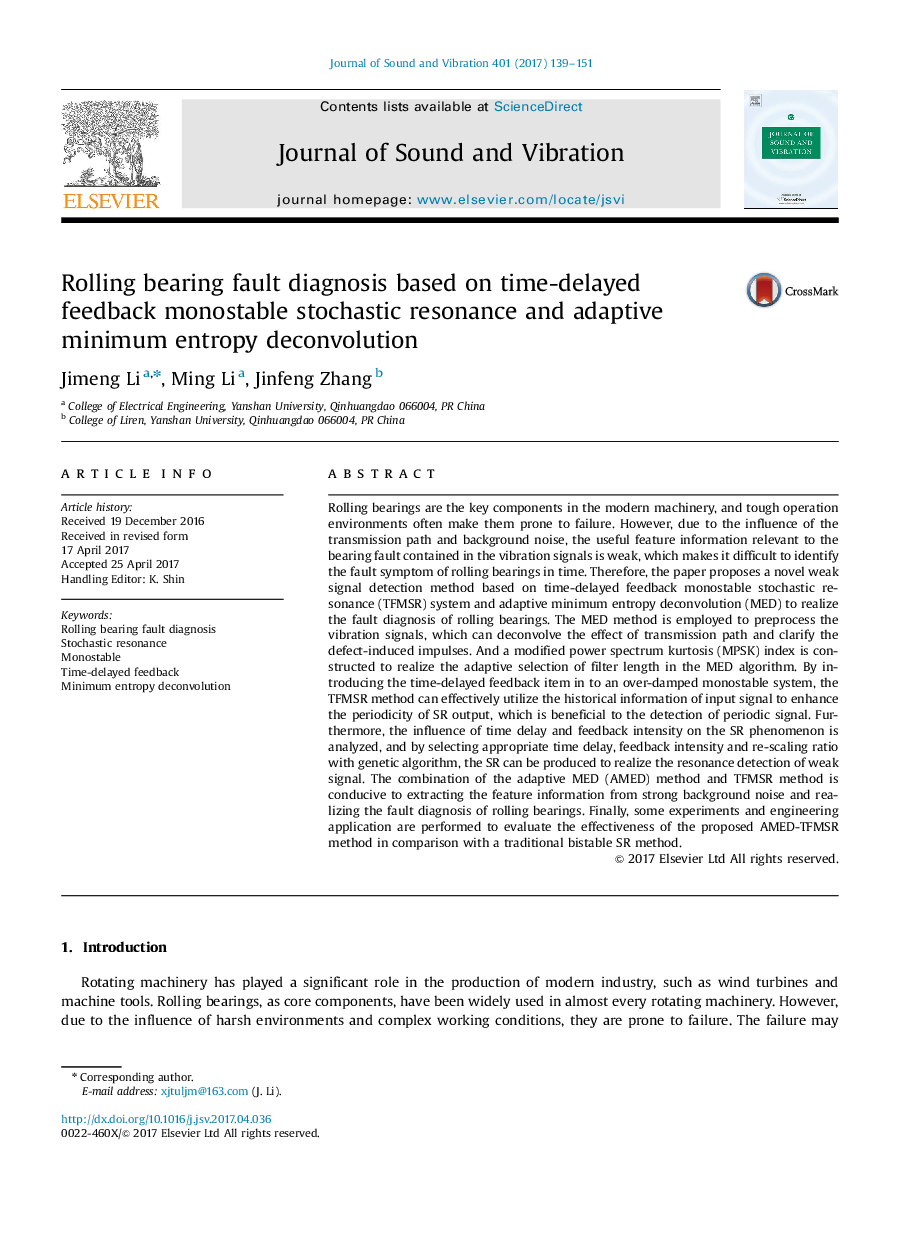ترجمه فارسی عنوان مقاله
تشخیص خطای غلتک بر اساس بازخورد زمان تاخیری رزونانس تصادفی مستقل و حداقل انطباق پذیری انتروپی
عنوان انگلیسی
Rolling bearing fault diagnosis based on time-delayed feedback monostable stochastic resonance and adaptive minimum entropy deconvolution
| کد مقاله | سال انتشار | تعداد صفحات مقاله انگلیسی |
|---|---|---|
| 152409 | 2017 | 13 صفحه PDF |
منبع

Publisher : Elsevier - Science Direct (الزویر - ساینس دایرکت)
Journal : Journal of Sound and Vibration, Volume 401, 4 August 2017, Pages 139-151

